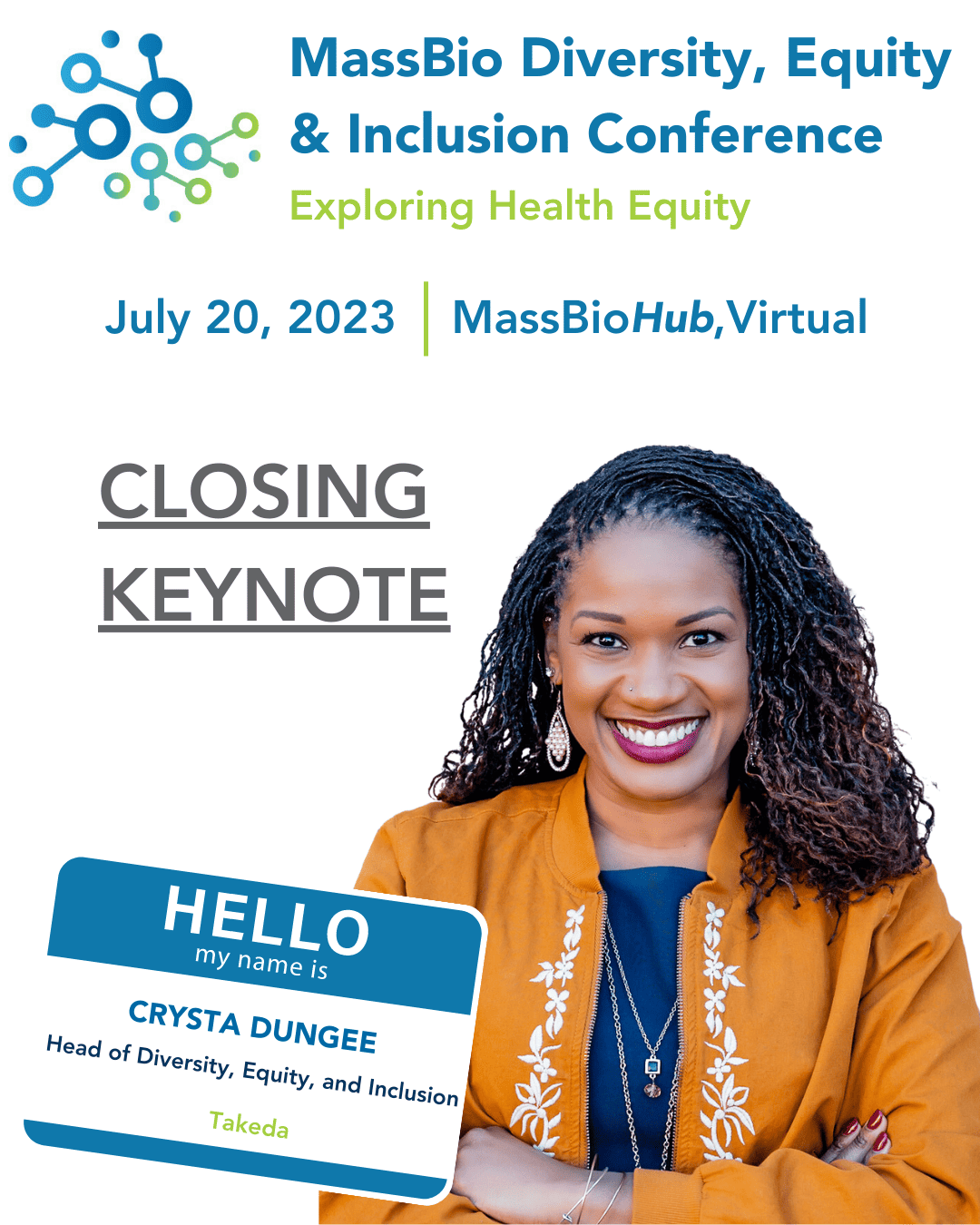Guest Blog by Crysta Dungee, Head of Diversity, Equity, and Inclusion | Takeda

The Trust Challenge in Healthcare
“By behaving in ways that build trust with one, you build trust with many.”
When I think about the importance of building trust with employees, patients and communities as a Diversity, Equity and Inclusion (DE&I) leader, those words by Steven M. R. Covey are my personal mantra. I often reflect on ways to build trust in healthcare, and the challenges associated with its inverse: the deep-seated distrust patients in underserved communities often feel due to historical and systemic inequities in the U.S. healthcare system. Distrust and erosion of trust can feed into reluctance and hesitancy, and impede the possibility of trusted connections.

But how do we move away from distrust and hesitancy? At Takeda, trust is a foundational component to enacting our patient-centric vision. Yet sometimes building trust feels elusive due to deep-seated past hurts nursed by some communities for generations. I’ve found that using actionable steps to approach and build trust among my team, within my organization and in my community is critical. The very first step is deep listening—listening with the intent to learn and connect. It is in this place of greater connection and openness that meaningful collaboration takes place. This is where you can find Takeda, deeply rooted in the community, listening.
Consider this:
- Confidence in the healthcare system has decreased over time. In 1974, 54% expressed a great deal of confidence in “the people running” medicine. In 2021, fewer than four in 10 adults (38%) said they had a great deal of confidence.1
- Inequities of care persist, as evidenced by ongoing and disproportionate impact on patients in underserved communities. Lack of trust in healthcare remains an issue in the U.S., particularly among individuals who identify as Black, Asian, Hispanic and Native American.2-4
When I think of these trust barriers, along with barriers from social and structural determinants of health, it is clear how important it is to engage in authentic trust-based collaborations and aspire to more equitable healthcare engagements to impact patient perception and improve outcomes.4
Tips to Build Trust in Healthcare
Here are some actionable steps you can consider on your path to building trust within your organization and beyond:
1. Defining Trust: Outline Your Vision and Map Out Steps to Get There
- While there is increased awareness of the importance of prioritizing DE&I overall, it is critical to spell out your vision, strategic priorities and concrete goals.
- Be intentional about aligning your priorities with your company’s core values and business objectives. Don’t forget to be a trustworthy champion and back up your vision with tangible actions.
- Be clear. If there is a disconnect between what you say and what you do, there is a real risk of eroding stakeholder trust within your organization. Consider aligning your words with actions, or “walking the talk” and sharing transparent updates on challenges or progress in how you’re achieving your stated goals. These are foundational steps that demonstrate caring, competency and honesty— the building blocks of trustworthiness.5
2. Fostering Trust: Look Inward to Look Outward
At Takeda, we consider how to enable a diverse workforce with equitable representation at all levels. We consider how we can best equip leaders with trust-building skills and behaviors that drive an inclusive workplace culture for all our people.
For your organization, this could include:
- Leveraging data to inform how you’re hiring, developing and retaining underrepresented talent.
- Offering anti-bias and cultural humility training to advance inclusive leadership and help retain skilled diverse workers.
- Fostering ongoing dialogue with employee resource groups to listen and understand how you’re doing to cultivate an inclusive workplace culture that empowers your employees.
- Aligning on DE&I priorities, plans and success criteria with leadership.
Creating internal DE&I opportunities for ongoing communication, transparency and collaboration set the stage for employees to consider how best to help patients achieve better health and a brighter future.
3. Facilitating Trust: Identify Diverse Patient Needs with Community-First Lens
- Embrace engaging with trusted community-serving organizations that understand the barriers to equitable care for their underserved patients.
- Ground your desire to facilitate trust in relationships by listening and communicating. Identify like-minded partners who understand the challenges to equitable care for diverse patients in their communities and explore possibilities of building trusted relationships based on shared values and priorities.
- As you forge connections, confirm planned actions with community stakeholders by co-developing culturally resonant resources to help patients and address barriers to equitable care.
- Adopt an approach rooted in cultural humility—it’s vital to authentically connect with communities. By fostering awareness, providing education, ensuring language access, respecting cultural beliefs, and collaborating with community leaders, you can help ensure patients from all backgrounds feel heard, understood, and respected.
++++++
Building trust is a worthwhile journey that can take time, effort and ongoing sustained commitment, but the prospect of building trust towards a better and more inclusive future for patients is what inspires me.
About the Author

CRYSTA DUNGEE
Head of Diversity, Equity, and Inclusion | Takeda
[Have a tip to help build trust in healthcare? Find me on LinkedIn]
Crysta Dungee is a diversity, equity, and inclusion (DEI) thought-leader who has over a decade of experience in transforming organizational culture and advancing underrepresented leaders. She approaches DEI from a people-first lens with the belief that all leaders can develop the personal awareness and key competencies to lead inclusively. She currently is the Head of Diversity, Equity, and Inclusion at Takeda.
References
- Robert J. Blendon, John M. Benson; Trust in Medicine, the Health System & Public Health. Daedalus 2022; 151 (4): 67–82. doi: https://doi.org/10.1162/daed_a_01944.
- Leslie Read, Leslie Korenda, Heather Nelson . Rebuilding trust in health care. Accessed July 7, 2023: https://www2.deloitte.com/us/en/insights/industry/health-care/trust-in-health-care-system.html
- Carole A. Robinson, “Trust, health care relationships, and chronic illness: A theoretical coalescence ,” Global Qualitative Nursing Research 3 (2016); Johanna Birkhäuer et al.,
- “Trust in the health care professional and health outcome: A meta-analysis ,” PLoS ONE 12 (2017), no. 2.https://www2.deloitte.com/us/en/insights/industry/health-care/trust-in-health-care-system.html#endnote-sup-1
- Hall M. A. (2006). Researching medical trust in the United States. Journal of Health Organization and Management, 20, 456–467. doi: 10.1108/14777260610701812.